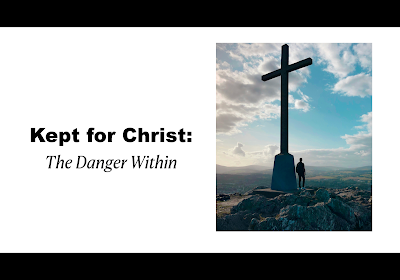“There’s something that gnaws at me, quietly but persistently—like termites eating through the foundation of my soul. Years ago, I was certain nothing mattered more than knowing God. I still believe that in my head, but my life doesn’t always show it. Too often, I slip into spiritual apathy, living as if God is a faded memory rather than the heartbeat of my existence.”
—Bill Perkins, Six Battles Every Man Must Win
This thought from Bill Perkins deeply resonates with me. In my heart, I know my life flows from my relationship with God. I have had those moments when everything felt clear—when it seems like God and I are walking side by side. But I also have to admit that more often than not, I act like I’m the one in control, walking through life as if God’s voice has faded into the background.
It is easy to lose sight of the life God has for us. The reality of daily demands—work deadlines, endless notifications, family responsibilities, and the pressure to keep up—push us along. In this chaos of life, God becomes an afterthought, crowded out by what feels urgent and important. How do we break that cycle? How do we refocus our lives on God when the world screams for our attention? Here are three steps I’ve found that help me stay connected to God.
1. Remember What’s Temporary
The first step is a reality check: the life we know is slipping away. We pour energy into accumulating stuff—new gadgets, social media likes, career wins—only to watch them lose their value. Athletes retire, awards gather dust, tech gets outdated, and trends vanish. As the Apostle John put it, “This world is fading away, along with everything it craves” (1 John 2:17a, NLT). This is why it is important to recognize the fleeting nature of this life. It helps shift our perspective. It reminds us of what lasts: love, faith, and hope. When we fix our eyes on what endures then the reality of life is put into proper perspective.
2. Worship God
The second step is worship—not just singing on Sunday, but creating a posture of gratitude and love for God in our hearts. Worship can look like belting out a praise song in the car, journaling a prayer, listening to a podcast that stirs your faith, or walking through nature in awe of God’s creation. Psalm 150:1-2 (NLT) says, “Praise the LORD! Praise God in his heavenly dwelling; praise him in his mighty heaven! Praise him for his mighty works; praise his unequaled greatness!” When we stop to worship, we lift our gaze from the to-do list and focus on our Creator and Savior. This act is like hitting reset—suddenly, the noise of life fades, and God is returned to His rightful place in our lives.
3. Prioritize Relationships Over Things
Finally, we need value our relationships. People matter more than possessions or achievements. Unfortunately this truth is forgotten, and we put a premium on what we have and what we can do. Jesus said, “Love each other. Just as I have loved you, you should love each other. Your love for one another will prove to the world that you are my disciples” (John 13:34-35, NLT). Investing time in family, friends, coworkers, or even a stranger at the coffee shop isn’t just about being nice—it is loving what God loves: people created in His image. A kind word, a shared meal, a listening ear: these small acts ripple into influence. And influence, not power or status, is what changes lives of the people we know and love.
Choosing the Better Way
When life feels overwhelming and God feels far away, it is an indication that we need to hit pause. After all, we have a choice to make. We can let the current of demands carry us along the path of life, or we can choose to reorient our hearts with the heart of God. That choice is ours to make—and honestly, I can’t think of a better way to live than a life lived for God. It is crucial to remember that this is not about perfection; it’s about the direction of our lives. A life rooted in God doesn’t just wander aimlessly, following the directions of culture—it walks the narrow way following Jesus.
What about you? How do you refocus when the world pulls you off course?







